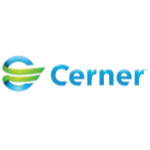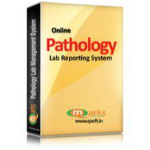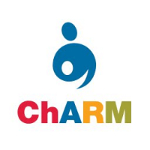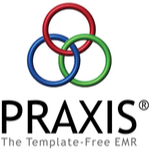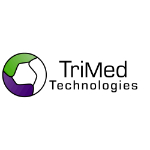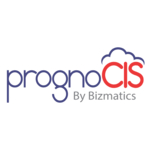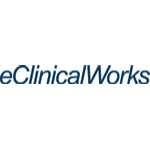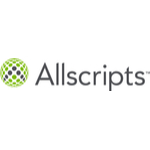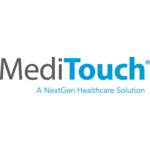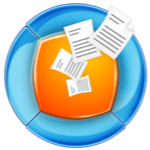TechnologyCounter provides genuine, unbiased real user reviews to help buyers make informed decisions. We may earn a referral fee when you purchase through our links, at no extra cost to you.
List of 15 Best Electronic Medical Records Software
Showing 1 - 15 of 191 productsOracle Cerner is an innovative health care technology company that specializes in providing solutions for medical organizations. With its advanced software systems and cutting-edge technology, Oracle Cerner is dedicated to helping healthcare professi...Read Oracle Cerner Reviews
Qmarksoft Pathology offers exceptional features that cater to all your lab needs. With complete customization options, user-friendly interface, and cost-effective pricing, Qmarksoft Pathology allows you to efficiently manage and monitor your lab oper...Read Qmarksoft Pathology Reviews
MicroMD EMR is the innovative electronic medical records system designed to streamline and simplify the daily tasks of healthcare providers. With a user-friendly interface and powerful features, MicroMD EMR empowers medical professionals to enhance p...Read MicroMD EMR Reviews
ChARM Health is a healthcare platform that simplifies the management of patient care. Designed with the needs of medical practices in mind, ChARM Health streamlines administrative tasks and provides a streamlined approach to clinical operations. With...Read ChARM Health Reviews
AdvancedMD is a intuitive and innovative software solution tailored for healthcare professionals. With its user-friendly interface features, AdvancedMD streamlines administrative tasks, enhances patient care, and improves overall practice efficiency...Read AdvancedMD Reviews
Praxis EMR is a leading electronic medical record software designed to simplify and streamline healthcare workflows. With its user-friendly interface features, Praxis EMR allows doctors and medical professionals to efficiently manage and organize pat...Read Praxis EMR Reviews
e-Medsys is a solution for streamlining the healthcare industry. Our advanced software offers a multitude of features designed specifically for healthcare professionals, making it easier than ever to manage patient records, appointments, prescription...Read e-Medsys Reviews
PrognoCIS EMR PrognoCIS EMR is a electronic medical records software designed to streamline and optimize healthcare practices. With its user-friendly interface features, PrognoCIS EMR provides healthcare professionals with a comprehensive is a soluti...Read PrognoCIS EMR Reviews
Halemind, the innovative software designed to enhance your mind and optimize your performance. With its advanced features and user-friendly interface, Halemind is a tool for boosting your cognitive abilities and achieving your goals. Say hello to a s...Read Halemind Reviews
75Health is a healthcare management solution designed to streamline and simplify your medical practice. With its innovative features and user-friendly interface, 75Health empowers healthcare professionals to efficiently manage patient records, appoin...Read 75Health Reviews
eClinicalWorks is a leading electronic health records (EHR) software that is trusted by healthcare providers all over the world. With an intuitive interface and robust features, this software streamlines the process of managing patient information, s...Read eClinicalWorks Reviews
Allscripts is a leading electronic health record (EHR) software designed to streamline and improve healthcare delivery. With a user-friendly interface features, Allscripts empowers healthcare providers to efficiently manage patient information, impro...Read Allscripts Reviews
MediTouch is a dynamic healthcare software that offers innovative solutions for all your medical needs. With its user-friendly interface features, it streamlines and simplifies administrative tasks, allowing medical professionals to focus on providin...Read MediTouch Reviews
CAM EMR the revolutionary software taking the healthcare industry by storm. With its advanced features and user-friendly interface, CAM EMR simplifies the process of patient record management for healthcare professionals. Say goodbye to tedious paper...Read CAM EMR Reviews
Experience the power of simplifying your repetitive tasks with PhraseExpander. This dynamic software allows you to easily expand commonly used phrases, emails, and templates in just a few keystrokes. Say goodbye to tedious typing and hello to increas...Read PhraseExpander Reviews
- What Is Electronic Medical Records Software?
- Top Reasons Why Businesses Need Electronic Medical Records Software?
- What Are the Top Key Features of Electronic Medical Records Software?
- What Are the Top Benefits of Electronic Medical Records Software?
- What Are the Steps to Choose the Right Electronic Medical Records Software?
- What Are the Types of Electronic Medical Records Software for Different Industries?
- What Are the Technology Trends for Best Electronic Medical Records Software?
- What Are the Deployment Options for Electronic Medical Records Software?
What Is Electronic Medical Records Software?
EMR (Electronic Medical Records) software allows medical personnel to electronically store and manage patient information. It is an internet system that collects, organises, and maintains medical data for hospitals, medical clinics, and long-term care facilities.
The EMR medical records software assists in the creation of a full medical record for each patient, which is accessible to all relevant staff members. Medical EMR software often include a patient's medical history, prescriptions, allergies, previous hospitalisations, immunisation records, laboratory findings, photographs, and insurance information.
They also contain information about visits, treatments, tests, and procedures carried out by healthcare specialists at the facility. EMR software enables healthcare organisations to securely handle and retain patient records while also providing quick access to them. It also enables for more efficient communication between physicians and other healthcare personnel.
The best electronic medical record software allows for more effective communication and patient care. Medical EMR systems can also be accessible remotely, providing for improved clinical decision making and quality outcome metrics. Finally, electronic medical records can assist healthcare providers with invoicing and administrative duties.
Top Reasons Why Businesses Need Electronic Medical Records Software?
1. Increased accessibility to patient records - The best electronic medical record software facilitates and accelerates access to medical record data and information, hence enhancing the use of best practises in patient care.
2. Improved efficiency in charting - EMR software makes it easier for health care workers to chart patient records than traditional paper records. EMRs can give more complete information more quickly, allowing for better medical decision making.
3. Reduced costs associated with medical records - EMR electronic medical records software reduces the need for numerous copies of patient records, lowering storage costs and making medical records more accessible for improved patient care.
4. Improved tracking for patient care - EMR medical records software enables improved documenting and tracking of medical treatments, hence improving medical record accuracy.
5. Enhanced display capability - Medical details are provided in more graphic formats with EMR software, allowing healthcare workers to understand complex treatments.
6. Improved intake booking - Medical EMR systems aids in the booking and scheduling of patient intakes, making the process simpler and more efficient.
7. Faster data retrieval - The best electronic medical record system has the ability to instantly save and retrieve medical information, allowing for quick access to patient medical records when needed.
8. Enhanced analysis capabilities - EMR electronic medical records software can collect and retain crucial health information in order to improve patient analytics and spot trends or patterns.
9. Easier documentation of patient encounters - Using the best electronic medical record software, comprehensive documentation may be promptly assembled and completed.
10. Advanced security measures - Patient data is protected by encryption and authentication mechanisms in the best electronic medical record system.
11. Better integration with other systems - EMR medical records software is easily connected with other health systems and apps, improving medical record accuracy and expediting service delivery.
12. Improved tracking of billing information - Payments and other billing information can be tracked and stored using Electronic Medical Records Software, allowing health care providers to optimise operations.
13. Enhanced patient portals - Medical EMR systems can provide secure online access to patient records, boosting transparency and promoting patient participation.
14. Reduced risk of medical errors and malpractice - Medical personnel can limit the possibility of medical record errors, which can lead to malpractice, by using EMR medical records software.
15. Improved auditing and reporting - EMR electronic medical records software simplifies auditing and reporting of patient data, assisting health care professionals in meeting legal and regulatory requirements.
What Are the Top Key Features of Electronic Medical Records Software?
The top key features of Electronic Medical Records (EMR) software include:
1. Automation of Data Entry: Data entry automation replaces manual data entry and reduces errors caused by human input.
2. Document Management: Electronically store, organise, and search for patient documents.
3. Lab & Test Results Tracking: Top electronic medical record systems track and save test findings, creating scenarios that may be readily shared with other suppliers.
4. E-Prescribing: EMR medical records software feature enables providers to deliver prescriptions to pharmacies electronically.
5. Secure Messaging: Allow providers to safely exchange messages with one another.
6. Appointment Scheduling: Schedule patient appointments automatically and send appointment reminders.
7. Electronic Billing & Claims Processing: Many EMRs have billing and claims processing capabilities, which help to expedite administrative procedures.
8. Clinical Decision Support Tools: The best electronic medical record system provides relevant, point-of-care information to providers to enhance best practice and increase patient safety.
9. Telemedicine: The best electronic medical record software provides patients with remote telemedicine services by utilizing EMR software from both the patient and provider viewpoints.
10. Reporting & Analytics: Top electronic medical record systems generate real-time reports and data to better serve patient and organizational needs.
What Are the Top Benefits of Electronic Medical Records Software?
1. Improved data security: Electronic Medical Records (EMR) are stored in a secure, centralised database, which provides additional protection over paper records, which can be difficult to safeguard. Patient data is also encrypted and safeguarded by access control methods.
2. Enhanced access to patient information: Healthcare providers can access patient data quickly and efficiently using top emr systems at any time and from any location. Top electronic medical record systems enable them to make appropriate clinical judgments quickly and stay up with changing patient needs.
3. Better patient data accuracy: An EMR system can significantly reduce data entry errors. Clinical data can be exchanged rapidly and precisely from one provider to another without the danger of human transcription errors.
4. Boosted efficiency: An EMR system automates data administration, allowing healthcare providers to focus on patient care rather than paperwork. All data is kept in one location and is available to everyone on the team.
5. Cost savings: Medical EMR software can help you save money on filing, printing, and storing paper records. It can also assist in limiting the number of duplicate tests, which can save money.
6. Improved patient engagement: EMR medical records software can help with the collection and sharing of patient data such as lab results and follow-up appointments. This enables healthcare providers to deliver better care and advice to their patients.
7. Improved quality of care: A thorough perspective of a patient's medical history can be provided by an EMR system, allowing doctors to make the best treatment decisions based on the patient's past and current health status.
What Are the Steps to Choose the Right Electronic Medical Records Software?
1. Consider your current requirements as well as your long-term goals: Begin by defining and comprehending your existing requirements, as well as how they may grow in the future.
Consider the following:
1. What is my current patient volume?
2. Do I need to keep track of appointments, referrals, or the profitability of my practise?
3. What kind of reporting will I be required to do?
4. Who will be using the system, and how familiar with EMRs are they?
2. Investigate various EMR software options: Make a list of your top EMR options and compare features and pricing. Inquire about platform integration, customization choices, and customer service.
3. Gather feedback from existing users: Request suggestions from peers and solicit feedback from current EMR users. Consider their experience with the software, including any difficulties they encountered and how the seller handled them.
4. Arrange for a product demonstration: Invite representatives from each of your chosen EMR vendors to deliver a live software demonstration. The best electronic medical record system will offer you a better knowledge of the system's functionality and user-friendliness.
5. Make a choice: After gathering all of your facts, assess your options and make a decision. A scorecard might be useful for comparing and contrasting various top EMR systems in terms of features, cost, and user experience. Use this information to find the top electronic medical record systems that best meet your requirements.
What Are the Types of Electronic Medical Records Software for Different Industries?
Electronic Medical Records (EMR) software is used by many different industries. Each software system is designed to provide specific benefits to its users, so the type of software you choose will depend on your particular needs.
Some of the most popular types of electronic medical records software systems are:
1. Ambulatory Care EMR systems: These are intended for ambulatory care centres or medical practises that focus on giving short-term medical visits to patients. These systems are capable of tracking patient histories, generating bespoke reports, storing diagnostic test findings, and providing real-time patient information to other care professionals.
2. Hospital Management Systems: These are exclusive to larger medical organisations such as hospitals. This type of system tracks patients from check-in to discharge, assists with billing, offers rapid access to patient records throughout the hospital, and aids in the coordination of patient care from room to room.
3. Patient Portal EMR systems: These are specifically built for patient access, and they enable patients to view their own medical information and personal data online. Patients can access their own medical data, schedule appointments, and examine lab results, among other things.
4. Pharma EMR systems: These are intended to give pharmaceutical corporations access to physicians' patient records and outcomes in real time. This approach enables pharmaceutical companies to target marketing efforts to the right Physicians and better track patient drug compliance.
5. Long-Term Care EMR systems: These are specifically developed to manage information for patients in long-term care settings, such as nursing homes and assisted living facilities. The system may keep track of patient information such as prescriptions, contact information, health screening, and other details.
6. Home Health EMR systems: These are intended to measure and manage home health care tasks such as blood sugar monitoring, oxygen monitoring, personal care, nutrition, and other activities. Independent home health care providers, in-home nurses, and other home physicians use these systems.
What Are the Technology Trends for Best Electronic Medical Records Software?
The following are some of the technology trends for best Electronic Medical Records (EMR) Software:
1. Interoperability- As healthcare organizations attempt to provide improved patient care, the capacity of medical EMR software to interface with other medical systems is becoming increasingly vital. Interoperability enables specialists to interact seamlessly in order to enhance diagnoses and treatments, resulting in fewer errors and better outcomes.
2. Cloud-Based EMRs- Cloud-based EMRs allow physicians and medical workers to securely access records from anywhere, at any time. This convenience is especially useful for those who live in distant areas with inadequate IT resources. Furthermore, because cloud-based EMRs are often Pay-as-You-Go services, they are far more cost-effective in the long run.
3. Artificial Intelligence- AI is increasingly becoming a significant tool in healthcare, assisting medical providers in more accurately predicting outcomes and diagnosing complex ailments. As AI advances, physicians will become more reliant on AI as part of their top EMR systems.
4. Mobile Solutions- Mobile apps are becoming increasingly significant for healthcare organizations because they enable physicians and users to rapidly and conveniently access information. Mobile solutions can help you save time and money, minimize paperwork and privacy problems, and ultimately improve patient care.
5. Automation- Healthcare organizations can use automation to streamline and standardize operations. Automation can improve workflow efficiency and accuracy, resulting in more secure data management and better patient care. Automation also allows healthcare workers to devote their time and energy to providing high-quality patient care.
What Are the Deployment Options for Electronic Medical Records Software?
Electronic Medical Records Software (EMR) deployment choices include on-premise, cloud/hosted, and hybrid solutions.
1. On-premise solutions necessitate the installation of software on dedicated and maintained hardware.
2. Cloud/hosted solutions provide software access through a web-based application, with cloud-hosted servers managed by the vendor.
3. Depending on the demands of the organisation, hybrid solutions enable the mixing of on-premise and cloud/hosted solutions.
